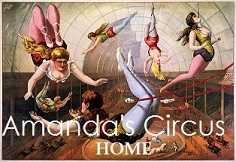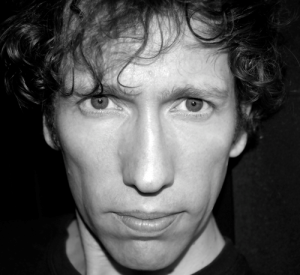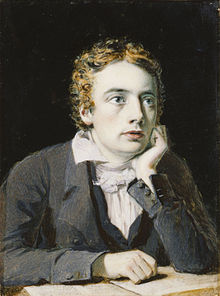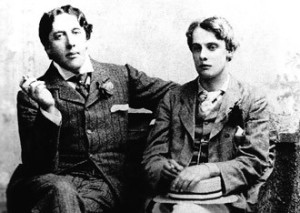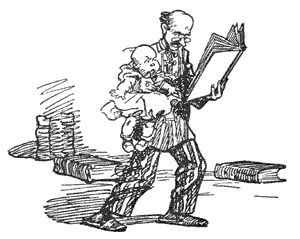Paul Davies – The Interview
Paul Davies writes prose and poetry. His literary agent is awaiting the completion of his second novel but it is his poetry that will form part of 10 Days.
Here is an extract from one of Paul’s novels:
‘Lawrence, if you can tear yourself away, I’m in the Nightingale wing.’
What was the point? He wasn’t interested. She had put this off as long as she could. She headed into the building, into a sterile world of sharp angles and sounds snapping off the walls. She registered at reception and paid six pounds for copies of her ultrasound pictures, then took a seat in the waiting area, the receptionist having promised it wouldn’t be long. By the time her name was called, she was hardly able to hold back tears. Maybe she should have asked Millie to come with her; wild horses couldn’t have kept her away. Or perhaps she should have told her mother. God, how she wished her mum was with her.
The ultrasound room was warm and dark. Shadows skulked under benches, behind curtains, squatting in the corners, watching her. The only light seemed to emanate from several monitors and a large screen positioned above a bed. One of the two nurses told her to put her coat and bag on a chair and pop off her shoes. Beth did as she was instructed, her fingers shuddering.
Amanda: I’m lucky enough to have read a little further and I felt totally in the head of your character, Beth. I experienced her trepidation. How did her character arrive?
Paul: Do you juice?
A: I do. I have one for lunch everyday.
P: I love juicing. I open the fridge every morning and find my ingredients: a carrot, beetroot, handful of spinach, a severed thumb of ginger, an apple or two, perhaps even some seeds whizzed in at the end. Delicious. Well, that’s how I create my characters. I base all of my characters on people I know, or knew, or observed once. I take a little bit of something from lots of different people and juice them up until I have the character I want for my story.
A: Oh, my God, that’s a risky business.
P: The great thing about doing this is that no one knows that a particular character is based on them because nobody sees themselves the way others do. You could take the most odious person you’ve ever encountered, write about all their bad traits and awful habits, then present the writing to them and as long as you’ve changed names and a few other telling details, they won’t know it’s about them.
But the truth is, no matter how much I do this, I’m really just writing myself. Isn’t that what writers do? Write about themselves, endlessly, in different guises, like an actor taking on roles. Like any actor, I find aspects of myself that speak loudly at a particular moment and I explore them, you know, I find my pain, my fears, those things I value more than anything, and then I jeopardise them or exploit them. Something like that. But, most importantly, I do it with empathy and imagination. I spend a lot of time thinking and feeling like my characters. It’s empathy that makes a character like Beth believable.
A: I love how you say: ‘I’m…writing myself’. I imagine that working in this way, you must discover a great deal about yourself. So how do you prepare to write your novel. Many people will plot before beginning to write. What comes first, character or plot?
P: Ah… the chicken or egg question. I mean, how do you have one without the other? Egg or chicken? Hmmm…. I’m a teacher of Literature and I’m always telling students about something F. Scott Fitzgerald once said about character: ‘Character is plot, plot is character.’ That pretty much sums it up for me. Nothing else matters. My writing is always character-driven. I create a character, give them a back-story, a voice, and as much baggage as I think necessary, then I drop them into the world of my story. The great advantage of such writing is that I have an idea of the journey I want to take these characters on; I’ve got the map, the car is full of petrol, but I don’t know the road and I don’t know which route my character will take. That’s very exciting for a writer, but hard work. I constantly have to ask myself ‘Is this working?’ and keep an eye out for dead-ends and cartoon-style cliffs. I’ve done a lot of Wile E. Coyote-style falling off cliffs as a writer. But sometimes, freebasing like that can produce something wonderful. I’ve just got to risk the fall.
A: And that takes courage. In the scene above, you write brilliantly from a woman’s viewpoint. Crossing over to the other gender is obviously not the most straightforward route to take when writing and you risk provoking your female readers. Why did you decide to write from a female perspective?
P: In this case, it was because I had a story that needed to be told from the perspective of three women. My wife told me a tale about something that happened to her and her friends when they were travelling in India. They found themselves in a sticky situation with some local men, but they managed to get themselves out of what could have been a crisis pretty quickly. Their story had terrifying potential as I pictured what could have happened if they hadn’t rallied together at that moment. What if things took a turn for the worst? What if the situation was merely a trigger detonating three bombs ticking away in the past lives of three other women? Then I had my story, up to a point, after that, I did my juicing and created Beth, Sadie and Millie. I sent them down a river and allowed them to dictate the course of events.
I hope the novel is provocative, that’s fine, but I don’t want it to be false or alienating. That’s why, at every turn, I made it as human as possible. That means making it emotionally charged and complex and contradictory, just like we all are. I love Keats’ concept of Negative Capability. It is the guiding principle in my writing.
A: That’s a wonderful way to operate – in life as well as writing. But have you encountered problems?
P: Yes and no. Obviously writing over the gender border is challenging, but not if you’ve read a lot of female authors’ stories and work on the basic metric that all human beings are fundamentally similar. We all love and hate and desire, etc. Those instincts are universal and timeless. I also take great inspiration from Alice Munro. She is a genius at creating character. Read Munro and you can learn how to see the world through anybody’s eyes. That’s another thing I tell my students: ‘She who reads lives many lives. She who does not read lives only once.’ I think that’s quite inspiring.
A: The story telling in this extract is skilful and seemingly effortless. How did you arrive at this style? I found your prose rhythmic and beautifully paced. Do the sentences arrive fully formed? How much re-writing is involved?
P: Thank you. But effortless, I wish. I draft and draft and draft. I pace around my room reciting my work like I imagine Oscar Wilde doing in the Cadogan hotel. I make the words sing as if they were poetry. Every single one of them must be true and sit in the sentence perfectly. It takes a lot of work. But I have a poetic mind. I think in poetry, I think.
A: Actually, you do look a bit like him. So, what are the main themes of your latest novel? What’s it about?
P: I could tell you but then I’d have to kill you.
A: What?
P: No, seriously, the latest novel I’m working on is such a good idea that I’ve been advised to keep it under wraps. That’s why my agent is sitting on my last novel that you’ve read the extract from. He thinks the second novel will make for a far more startling and original first novel. What he called a ‘dinner party book’ or ‘prize winner’. All I can say is that it is set in 1945. The clue is in the year.
A: That is exciting. I hope you’re not going to take too long writing it.
P: The extract you’ve read is from a novel set in Kerala, southern India. I have an epigraph from Graham Greene that perfectly captures what I’m writing about: ‘No human being can truly know another’. In my story three old school friends reunite to go on a backpacking holiday in India. They take an overnight boat journey through the Keralan Backwaters – a simply beautiful natural landscape, utterly peaceful – and there a misreading of a highly charged situation leads to one of the women committing an awful crime. The rest of the novel details how their friendship breaks down as they attempt to escape what they’ve done. I was attracted to the idea of the most terrible things happening in a place that is synonymous with peace and tranquillity.
A: It sounds like a novel I’d love to read. We all know how difficult it is to find a literary agent. How did you go about attracting their interest?
P: I’ve had two agents. My first I found at the Winchester Writers’ Conference several years ago. He got a lot of interest in my work from Vintage and Little Brown amongst others, but no deal was struck. I came to the conclusion that my writing didn’t suit my agent’s catalogue – he mainly dealt with crime thriller writers – so I jumped ship and went without an agent for a while. That was a tough decision because I really liked my old agent, he was a sound bloke, but I was afraid he couldn’t place my work. It’s terrifying having gained an agent, which is the first target of all young writers, only to surrender that position. Then a friend of mine was signed by PFD and she showed her agent my work. He liked it. He called me into his office for a meeting and signed me. But – and it was a big but – on the proviso that I write a new novel project first and have the Kerala novel (still titleless) as a fast follow-up to the first. He thought that my previous agent had killed the novel by sending it out to too many publishers before it was truly ready. That’s a lesson I’ve learned: you get one shot with a publisher and you have to take it when you know you’ll hit the bull’s-eye.
A: That took some guts, Paul. I admire your clear-sightedness. For 10 Days Chalk, you have chosen to write poetry. I particularly loved your poem ‘Private View’ where I found that the weight of language caused me to pause and imagine your startling images. It’s a vibrant poem. How does the writing process differ from that of the novel? Which genre do you find easiest or most natural?
P: Even though I said I think in poetry, I’m not a poet. I love poetry. I read a lot of it. I take great inspiration from poetry. But writing poetry is a gift I don’t possess. Sometimes I dabble in poetry for things like 10 Days because I find writing poetry isn’t as all-consuming as writing larger prose pieces like a novel. Poetry is a distraction and a way to flex the writing muscle when the old aches creep in. I’m naturally a prose writer because I create big story arcs and characters and explore themes that demand the novel.
A: You lead a very busy life with a family and a job that could consume every spare moment, I imagine. How do you manage to fit writing into it? Where do you write? What’s your writing routine?
P: I have been in writing hibernation since 2012 because, yes, my job as a teacher is all-consuming and I have a four year old daughter and eighteen month old twins. I have to steal time to write; I’m stealing time to write this. For me, writing a novel is like entering a monastic life. I must devote hours every day to the writing and I must do it in total isolation. That’s impossible when you’ve got forty essays to mark, lessons to plan and teach, house work to do, and three small ones to feed, entertain, bathe and tuck into bed. I have promised myself that I’ll be more selfish this year and get on with the writing of the 1945 novel. But it’s hard. I’m not naturally selfish.
A: I think many people will sympathise with you there. I’m sure you’ll agree that reading is a vital part of a writer’s life. What are the books that have most influenced you? What do you love to read?
P: I love American literature. There’s something I find compelling about the ambition and vision of American novelists and stories that I rarely encounter in other writers. I think I’m just about allowed to include Munro in this. My favourite author is Richard Yates. His short stories are some of the finest things out there. He once said that the only thing worth writing about is a heart breaking. So true.
My other favourite writer is Graham Greene. Have you read The End of the Affair? It is phenomenal. Reading Greene is a masterclass in how to write about important ideas within the framework of a page turning novel. The Power and the Glory, The Heart of the Matter, The Quiet American, I could read these novels over and over and never tire of the worlds and characters he creates.
A: Interesting choices. What are your writing plans?
P: Keep going. But after saying what I did about a heart breaking, I suppose I should say that becoming a father has changed me. The novel I’m working on now is about hope. That’s more important to me than ever now, an infinite capacity for hope.
A: Thank you so much, Paul. It’s been fascinating to glimpse what goes on in your writing world. You’ve given me a great deal to think about.
Paul is the Head of English Literature at Peter Symonds College, Winchester. He has a Ph.D. in Creative Writing from the University of Lancaster. His short stories and scripts have won many competitions including the Channel Four Film Challenge, Twitter’s Tweet Tales, and the Northern New Writers’ Award amongst others. He is trying to carve out time to write again.
